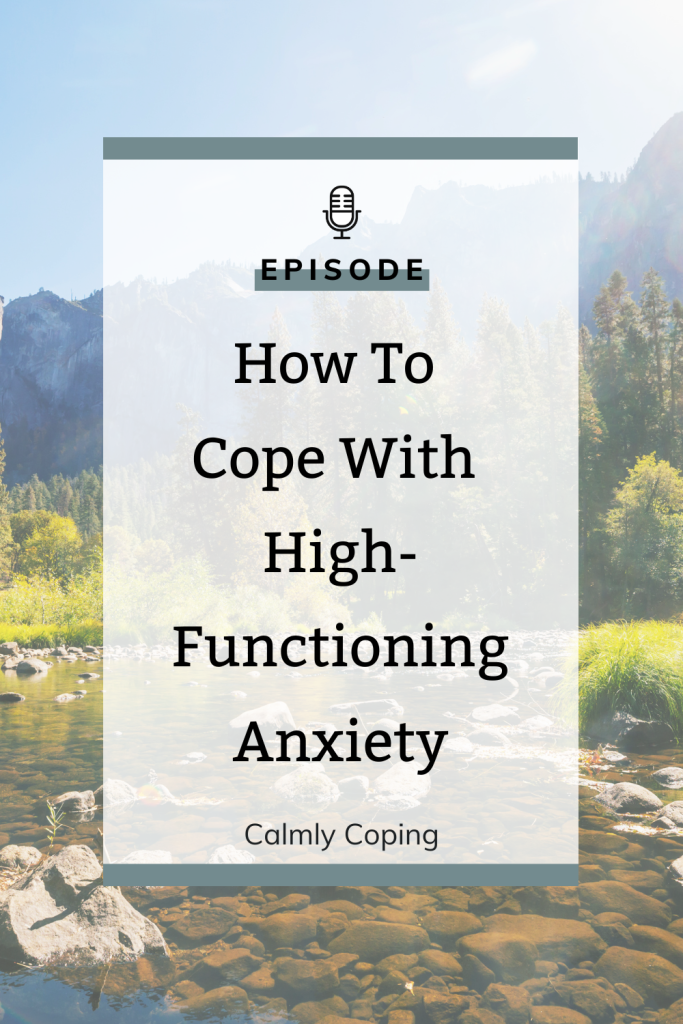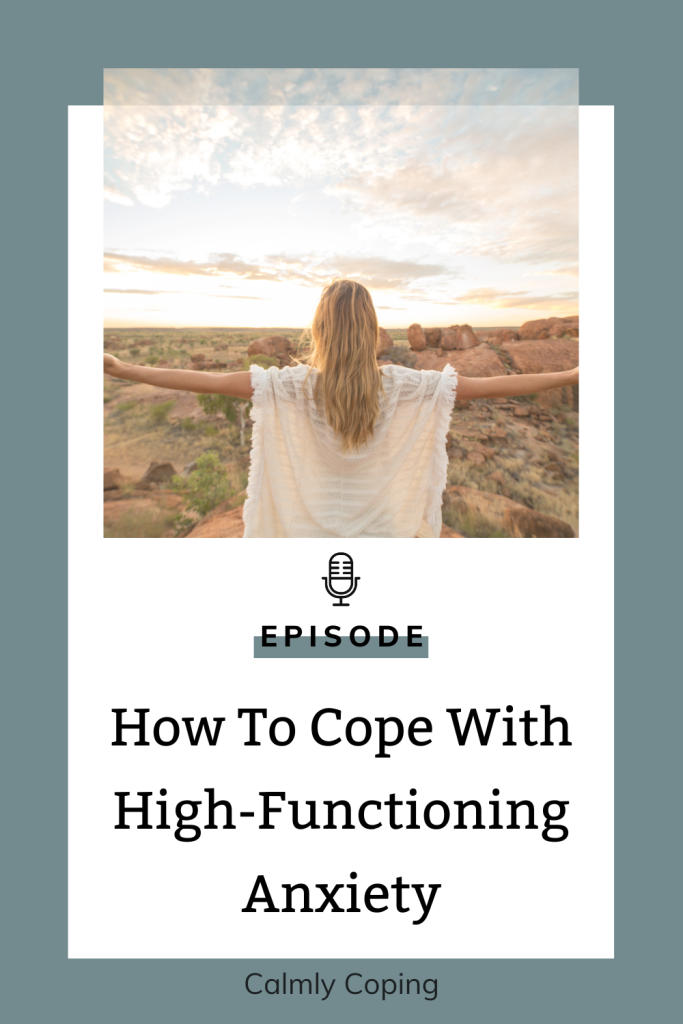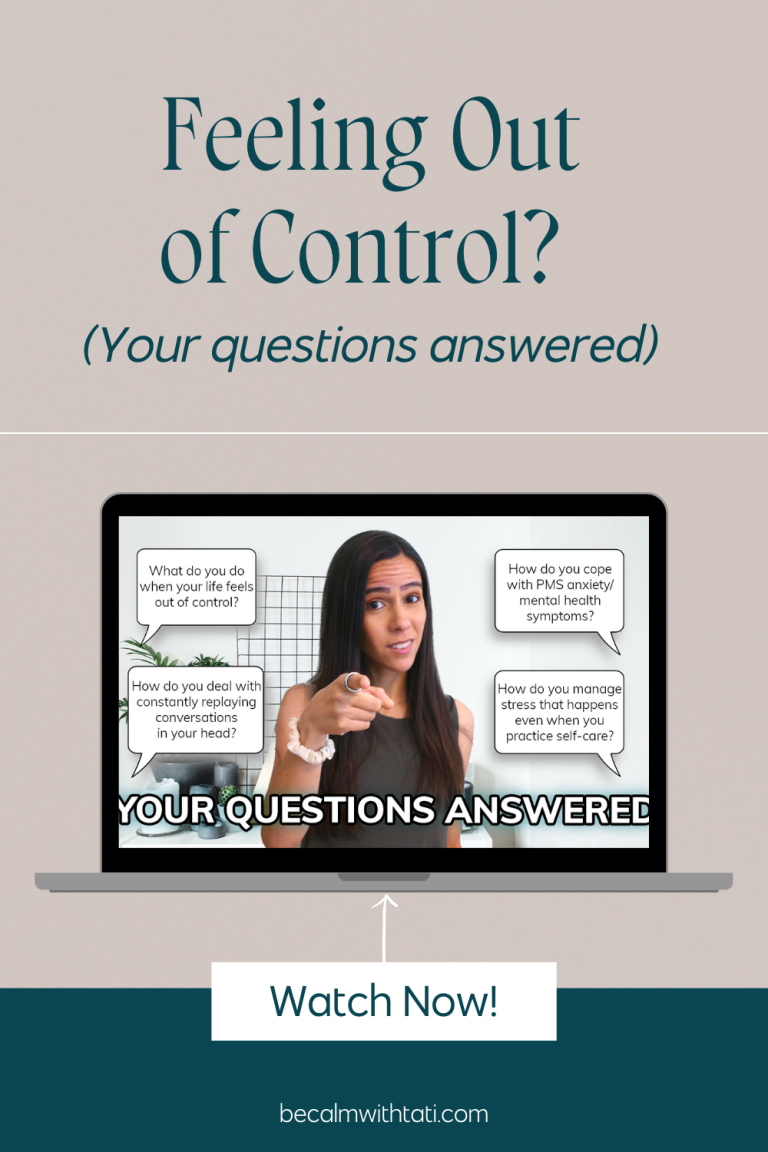4 Tips To Cope With High-Functioning Anxiety
When you struggle with high-functioning anxiety you are often doing pretty well externally, and you probably have pretty high expectations and standards for yourself, but it all comes at the expense of putting your needs last.
And what comes first?
- Work, work, work
- Saying yes to others because you feel guilty
- Aiming higher and achieving more
- Responsibilities, chores, to-do lists
- Being liked by others
These aren’t inherently bad things, many of them are good things! But the problem comes when your behaviors are being driven by fear and insecurity and the fear that you aren’t good enough rather than being driven by you feeling whole from within first.
You are whole and complete exactly as you are, and you don’t need to prove that to anybody by working harder, checking everything off your to-do list, being the perfect parent, and always doing everything perfectly. (It’s impossible, anyway.)
Here are 4 tips that you can practice this week to cope with your high-functioning anxiety rather than allowing it to control you!
1. Identify your strengths
Remember how unique and amazing you are. I mean it. You have so many incredible strengths that I can guarantee you don’t even realize. Any time you compare yourself to somebody else, or doubt if another person likes you, or fear that you’re not good enough… I promise you’re being way too hard on yourself.
Practice making a list of your strengths and identify all the amazing qualities you have. If this is hard for you, that’s okay. It can be hard to identify your strengths when you don’t have practice doing it, but I can guarantee that doesn’t mean that you don’t have strengths!
Here are some examples:
I am thoughtful, organized, caring, loyal, committed, detail-oriented, creative, intelligent…
2. Practice self-compassion
Practice self-compassion and speak to yourself like you would to a friend. Are you really hard on yourself? Do you put a lot of pressure on yourself and expect everything to be perfect, and feel like a failure if it’s not? At some point in your life you may have learned to be hard on yourself as a way of motivating yourself and avoiding failure, such as in school. But being hard on yourself doesn’t make you do better… it makes you feel so much worse! Would you say half of the things you say to yourself to a good friend of yours? You probably wouldn’t, so try changing the way you speak to yourself.
An easy way to practice this is to speak to yourself like you would to a friend. Think of a struggle you are currently going through, write it down below, and then write down what you would say to a friend going through the same struggle and practice saying it to yourself.
Download the free guide with these 4 tips + journal prompts to help you put them into action below!
3. Listen to Your body
Listen to your body and take it easy when you need to. It’s so easy to push through the signs your body is giving you that it’s time for a break. These signs can look like: tiredness, headaches, muscle tension, hunger, difficult emotions like anxiety, irritability, and frustration, difficulty concentrating, and more.
These signs don’t mean that you aren’t good enough to do what you have to do and to keep pushing through, it is not a reflection of who you are as a person… it just means that you are HUMAN!
Practice listening to the signals your body is giving you, whether they are physical or emotional, and ask yourself: what does my body need right now? Is it time for a break? A nap? A walk around the block?
4. Practice releasing physical tension
Practice physical relaxation to release tension. Anxiety is very physical, and can feel like difficulty breathing, jaw tension, muscle tightness, twitches, increased heart rate, headaches, and so much more. That’s when it can help to practice taking deep breaths and intentionally releasing the tension that builds up in your body that you might not even be aware of!
Do a quick mental scan through your body, from your head to your toes, and assess if you are holding onto tension anywhere. Many people hold tension in their jaw, forehead, upper back, shoulders, lower back, or hips. Breathe into that area and slowly release the tension, and keep practicing that throughout the day… because as you go through your day the tension will probably return!
Action tip:
Learning how to cope with high-functioning anxiety is a daily practice. Start small and practice one of these coping mechanisms this week and see if you notice a difference. The first step is awareness, so start by bringing awareness to the moments where you are hard on yourself, experiencing muscle tension, or are pushing past your limits and then try changing that behavior.















